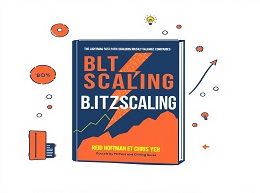Entrepreneurial DNA: The Breakthrough Discovery that Aligns Your Business to Your Unique Strengths

Discovering Your Entrepreneurial DNA: A Comprehensive Review of Joe Abraham’s "Entrepreneurial DNA"
Joe Abraham’s "Entrepreneurial DNA: The Breakthrough Discovery that Aligns Your Business to Your Unique Strengths" offers a revolutionary approach to understanding and leveraging individual entrepreneurial strengths. This book challenges the one-size-fits-all mentality of traditional business advice and introduces a personalized framework that aligns business strategies with the entrepreneur’s unique strengths and traits. This review delves into the core concepts of the book, illustrating its practical applications with relevant examples and insights.
The Concept of Entrepreneurial DNA
At the heart of Abraham’s book is the concept of Entrepreneurial DNA, which posits that every entrepreneur has a unique set of traits and strengths that influence their approach to business. By understanding these unique characteristics, entrepreneurs can tailor their strategies to maximize their potential and achieve greater success.
The Four Quadrants of Entrepreneurial DNA
Abraham categorizes entrepreneurs into four distinct quadrants based on their dominant traits: Builder, Opportunist, Specialist, and Innovator. Each quadrant represents a unique approach to business, with specific strengths and challenges.
Builder: The Strategic Visionary
Builders are characterized by their strategic thinking, long-term vision, and ability to scale businesses rapidly. They excel at creating systems, processes, and organizational structures that support growth.
Example: Jeff Bezos, the founder of Amazon, exemplifies the Builder DNA. His strategic vision transformed Amazon from an online bookstore into a global e-commerce giant, supported by a robust logistics network and innovative technologies.
Opportunist: The Risk-Taking Achiever
Opportunists are driven by their ability to identify and seize opportunities quickly. They thrive in dynamic environments and are adept at leveraging their networks and resources to achieve short-term gains.
Example: Richard Branson, the founder of the Virgin Group, embodies the Opportunist DNA. His willingness to take risks and enter diverse industries, from music to airlines, has led to the creation of a multi-billion-dollar conglomerate.
Specialist: The Expertise-Driven Operator
Specialists focus on building businesses around their specific expertise or skill sets. They prioritize quality, detail, and customer satisfaction, often becoming industry leaders in niche markets.
Example: Martha Stewart, a renowned lifestyle expert, demonstrates the Specialist DNA. Her deep knowledge of home decor, cooking, and entertaining has positioned her as a trusted authority and built a successful brand empire.
Innovator: The Creative Problem-Solver
Innovators are characterized by their creativity, curiosity, and ability to solve complex problems. They are often at the forefront of technological advancements and disruptive business models.
Example: Elon Musk, the CEO of Tesla and SpaceX, is a prime example of the Innovator DNA. His innovative approach to electric vehicles and space exploration has revolutionized industries and captured global attention.
Aligning Business Strategies with Entrepreneurial DNA
Abraham emphasizes the importance of aligning business strategies with one’s Entrepreneurial DNA to optimize performance and achieve sustainable growth. Each quadrant requires different approaches to marketing, management, and growth.
Marketing Strategies
- Builders: Should focus on creating scalable marketing systems and leveraging data analytics to drive decision-making.
- Opportunists: Should capitalize on viral marketing, influencer partnerships, and rapid product launches.
- Specialists: Should emphasize their expertise and build trust through content marketing, customer testimonials, and high-quality offerings.
- Innovators: Should highlight their unique solutions and disruptive innovations, engaging early adopters and tech enthusiasts.
Example: Apple’s marketing strategy, under the leadership of Innovator Steve Jobs, focused on showcasing their cutting-edge technology and sleek design, creating a loyal customer base that values innovation and aesthetics.
Management Styles
- Builders: Should implement structured management systems and delegate responsibilities to scale efficiently.
- Opportunists: Should maintain flexibility and adaptability, fostering a dynamic and responsive organizational culture.
- Specialists: Should prioritize quality control and customer satisfaction, maintaining hands-on involvement in key processes.
- Innovators: Should encourage experimentation and foster a culture of creativity and continuous improvement.
Example: Google’s management style, reflecting the Innovator DNA, encourages employees to spend time on creative projects, resulting in innovative products like Gmail and Google Maps.
Practical Applications and Case Studies
Abraham’s book is filled with practical applications and case studies that illustrate how entrepreneurs can leverage their unique strengths to overcome challenges and achieve success.
Case Study: Spanx
Sara Blakely, the founder of Spanx, showcases the Specialist DNA. Her deep understanding of women’s needs in fashion and commitment to quality led to the creation of a revolutionary shapewear product. Blakely’s hands-on approach and focus on customer satisfaction propelled Spanx to become a household name in fashion.
Case Study: Facebook
Mark Zuckerberg, co-founder of Facebook, exemplifies the Innovator DNA. His ability to identify and solve complex problems in social networking has driven Facebook’s continuous innovation and expansion. By fostering a culture of creativity and encouraging experimentation, Zuckerberg has maintained Facebook’s position as a leading social media platform.
The Benefits of Understanding Your Entrepreneurial DNA
By understanding and aligning with their Entrepreneurial DNA, business owners can experience numerous benefits, including:
- Enhanced Self-Awareness: Entrepreneurs gain a deeper understanding of their strengths and weaknesses, allowing for more informed decision-making.
- Improved Strategic Alignment: Business strategies can be tailored to leverage the entrepreneur’s unique strengths, leading to more effective execution and better results.
- Increased Resilience: Entrepreneurs can anticipate and navigate challenges more effectively by aligning their strategies with their natural inclinations and capabilities.
- Sustainable Growth: Aligning business practices with Entrepreneurial DNA fosters long-term growth and sustainability, as strategies are built on a solid foundation of inherent strengths.
Embracing Your Entrepreneurial DNA
"Entrepreneurial DNA: The Breakthrough Discovery that Aligns Your Business to Your Unique Strengths" by Joe Abraham is an invaluable resource for entrepreneurs at all stages of their journey. By identifying and understanding their unique Entrepreneurial DNA, business owners can tailor their strategies to align with their natural strengths, leading to greater success and fulfillment.
The book’s insights, supported by real-world examples and practical applications, provide a roadmap for navigating the complexities of entrepreneurship with confidence. Whether you are a Builder, Opportunist, Specialist, or Innovator, "Entrepreneurial DNA" offers the tools and guidance needed to harness your unique potential and drive your business to new heights. This personalized approach to entrepreneurship not only enhances individual performance but also contributes to the broader landscape of innovation and economic growth.













